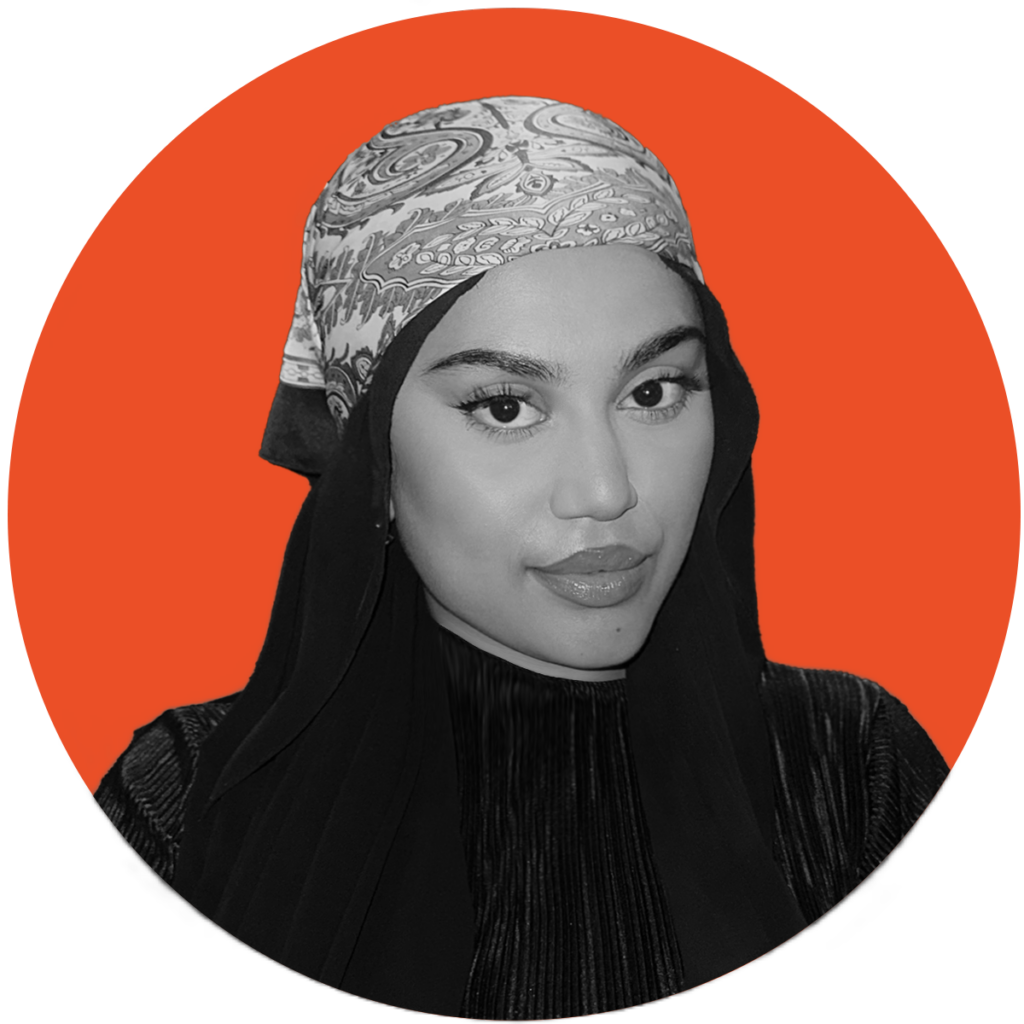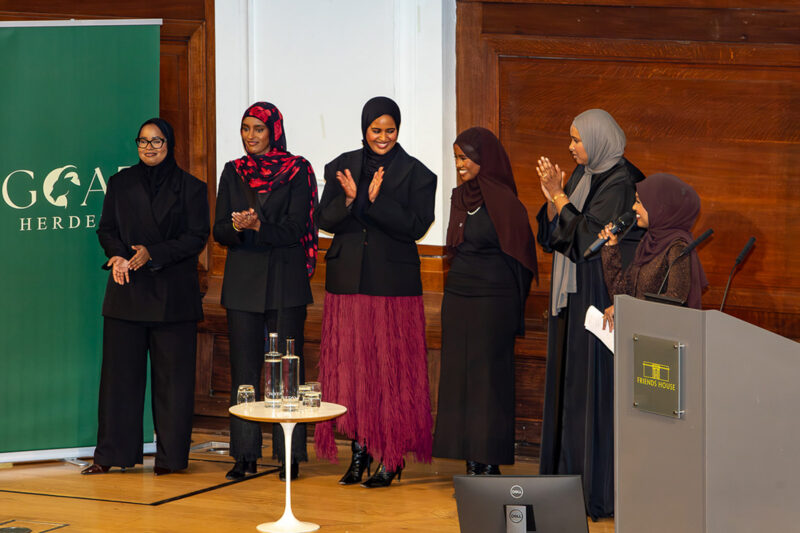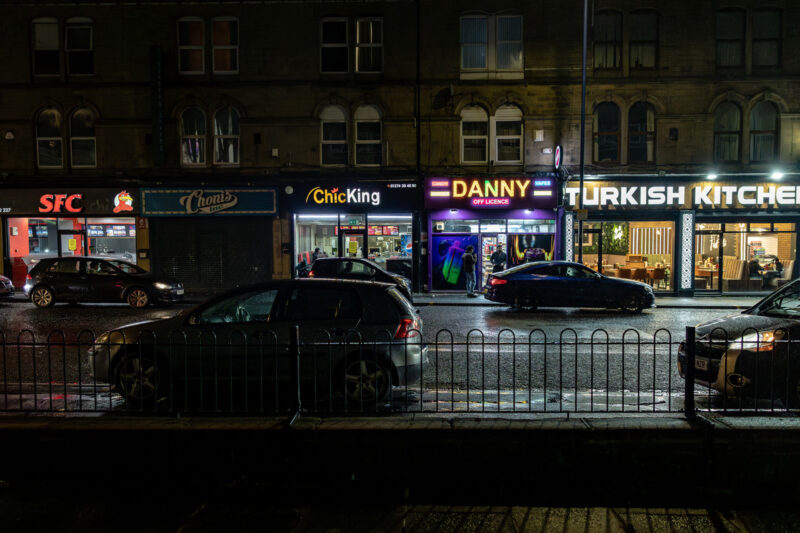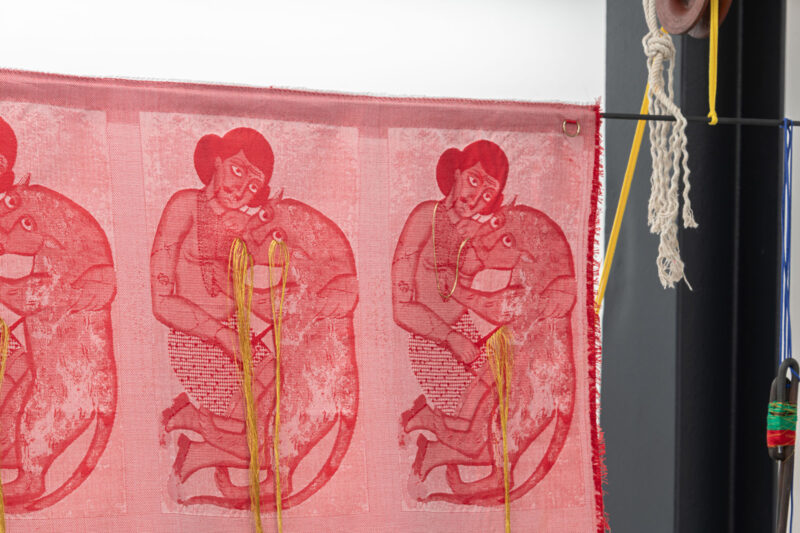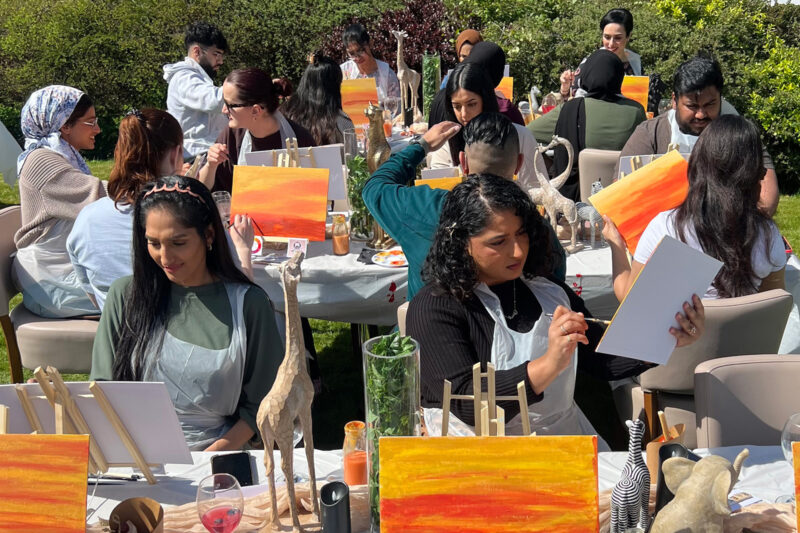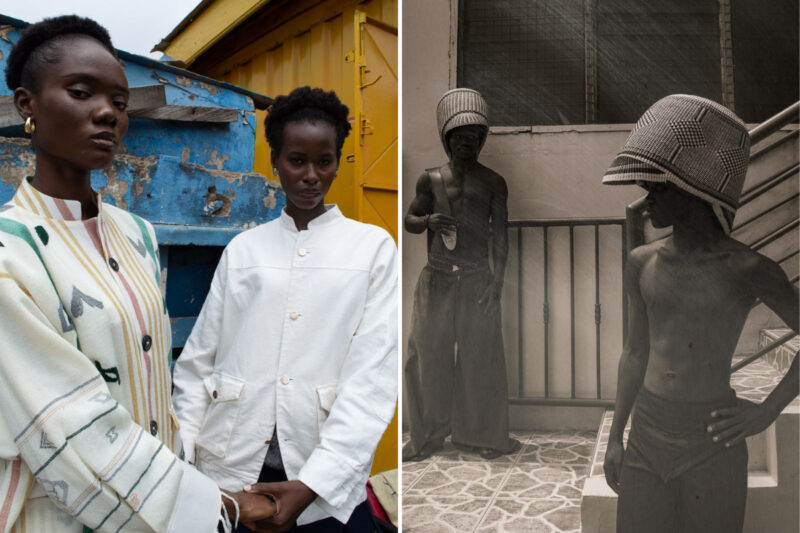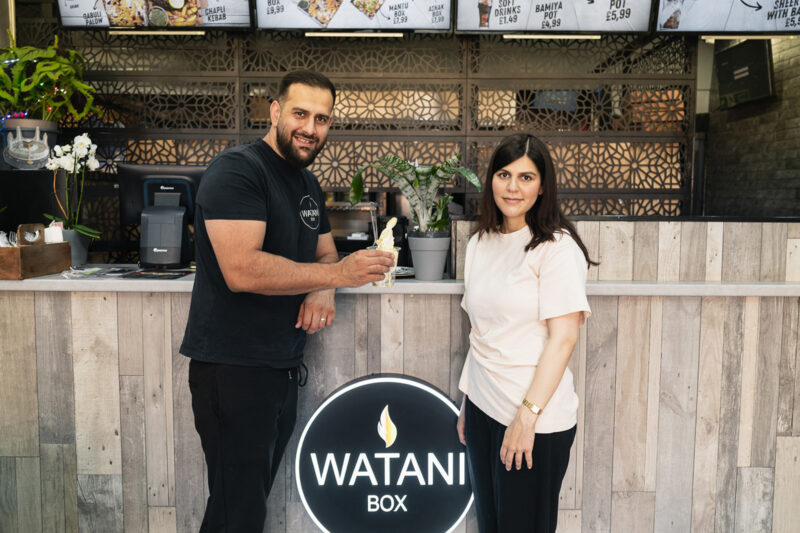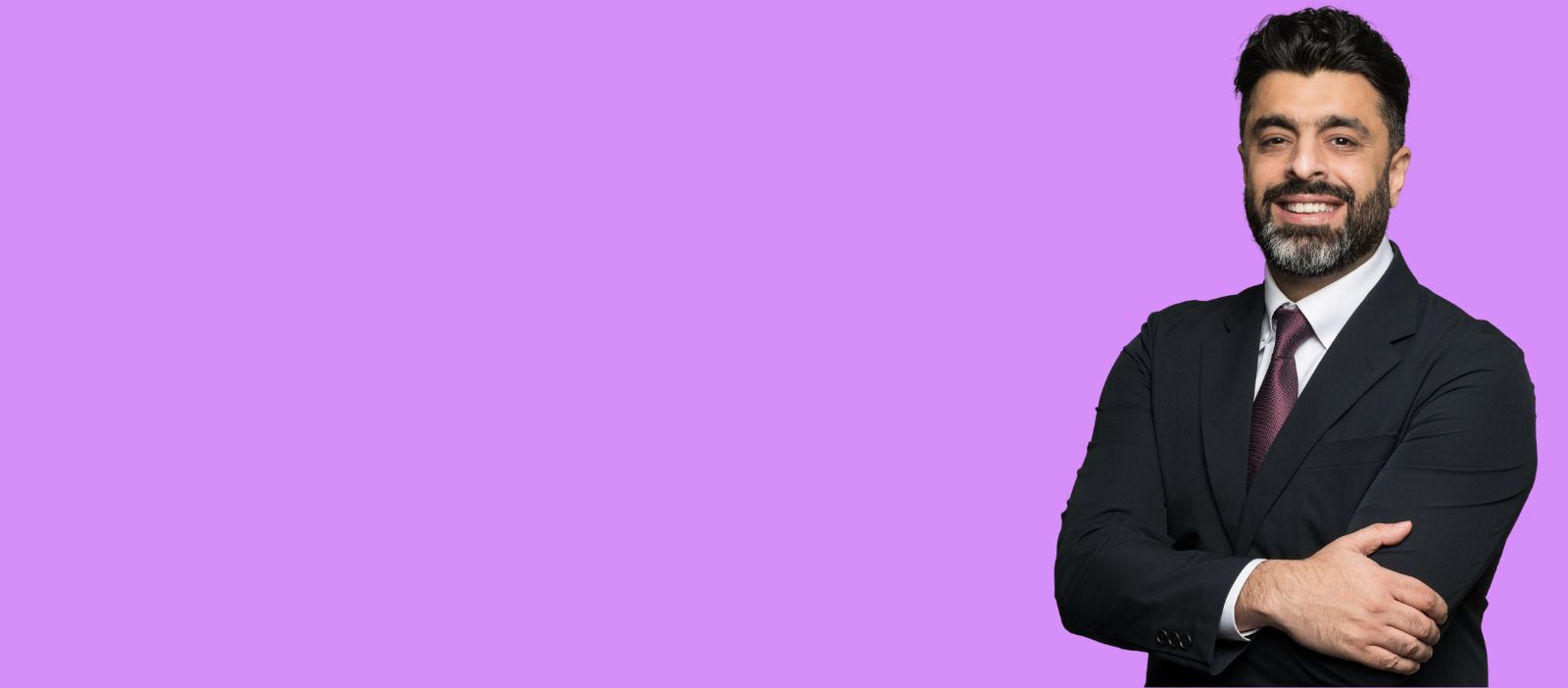
Aihtsham Rashid Q&A: ‘Halal doesn’t just mean what you eat, the whole process needs to be halal’
Entrepreneur Aihtsham Rashid was inspired to set up his halal cat food business by his wife and daughters. Photograph courtesy of Aihtsham Rashid
A cat food entrepreneur talks halal supply chains and product launches
Last year, Aihtsham Rashid came home one winter evening with boxes of treats for his cats Ivy and Coco. To his surprise, he was met with concern from his wife and daughters. “You can’t bring that inside, it’s haram,” they told him. Even if it’s not for you to eat, they explained, non-halal food can’t be purchased or brought into the home.
Rashid, who runs a construction company that builds mosques, began a hunt for cat food that he could guarantee was 100% halal.
In his research, the 45-year-old discovered the majority of Muslim cat owners — there are more than 500,000 in the UK — opt for fish in the hope that it’s in keeping with the Islamic ruling on halal foods.
But after doing some digging, and calling around UK pet food factories, he found that he could not rule out the chance of meat derivatives there either.
He was resolved to fix the problem, setting up Hurayra, a subscription-based cat food brand certified by the Halal Monitoring Committee (HMC), a charity that inspects and approves halal products for UK consumers.
The brand is set to launch this summer with four flavours: Tuna, Ocean Fish, Chicken and a special chicken-fish combo for kittens.
Ahead of the launch, the Leeds-based entrepreneur spoke to Hyphen about the challenges of ensuring non-cross contamination, and the importance of halal certification.
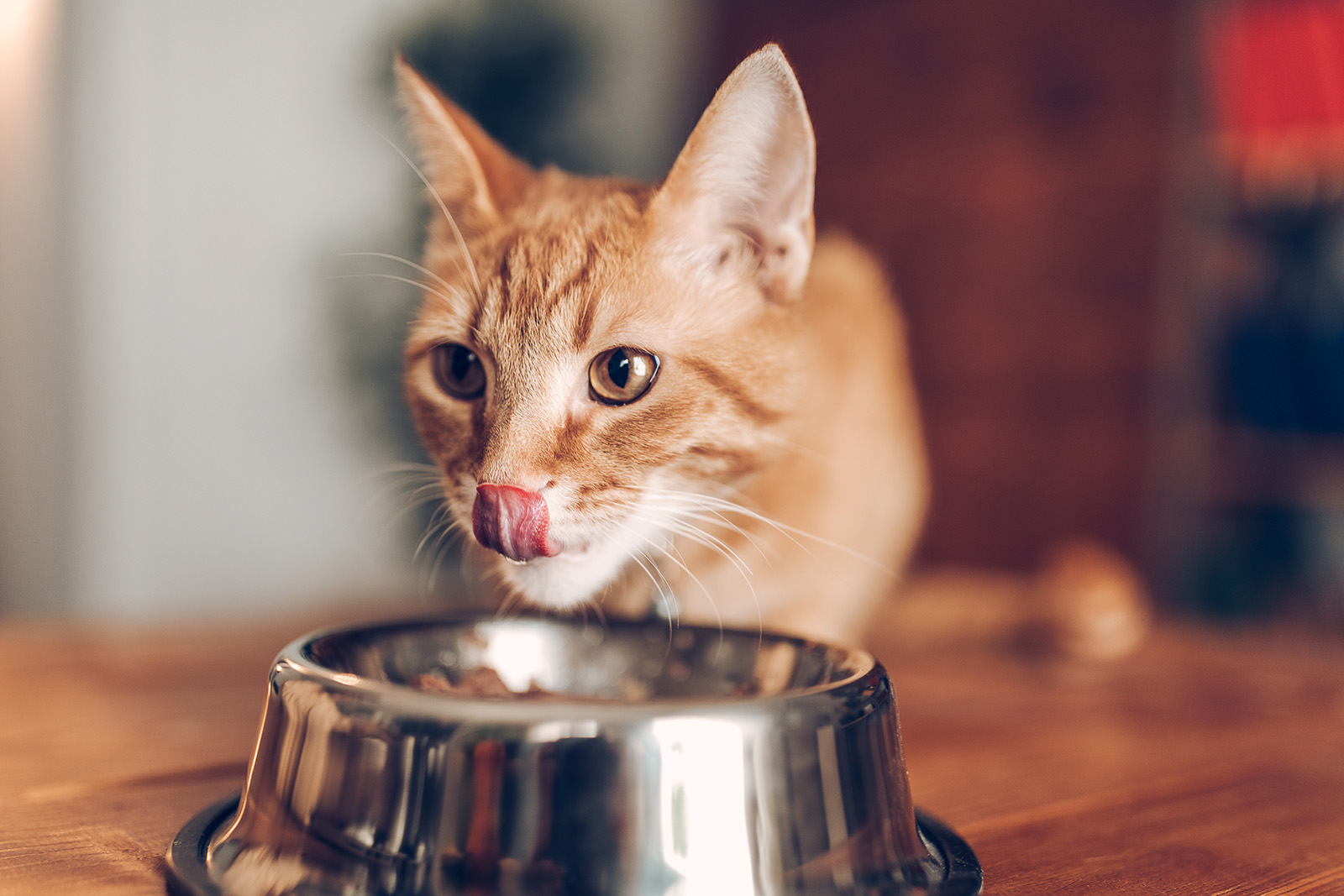
Where did the name Hurayra come from?
It was my family who came up with it. Abu Hurayrah was one of the companions of Prophet Muhammad and his name also means “father of a kitten” in Arabic. I knew that this name would be likeable with all Muslims because they would know who Abu Hurayrah was straight away. He was known to have a deep love for cats and would feed them in the masjid and on the streets.
Why did you decide to launch a halal pet food brand?
It was the lack of good quality, HMC-approved, Islamic-branded and non-genetically modified (GMO) pet food. I was feeding my cats supermarket-branded cat food until I came home and the missus and daughters said: “You can‘t bring that inside.” I thought they were being silly but they said: “It’s haram”.
It wasn’t something we thought about but when I got on the phone to a few scholars up and down the country with different schools of thought and learned of the Islamic ruling, I stopped feeding them to our cats.
I want to provide something for Muslims so they are not buying haram. It’s a form of Sadaqah Jariyah, an act of voluntary charity that continues to benefit other people even after you have passed.
I’m stopping people from buying haram and doing a good deed. Your pet can go out and forage for anything it finds outside or even go to your neighbour’s house and eat their non-halal food because that’s out of your control. However, as a Muslim you can’t purchase haram and bring it inside your home to feed to animals.
What challenges did you face in setting up the business?
I had rejections from a lot of people because no one believed that there is an Islamic ruling for pet food. But once the scholars got behind me and after I went on Islam Channel, the word started to spread.
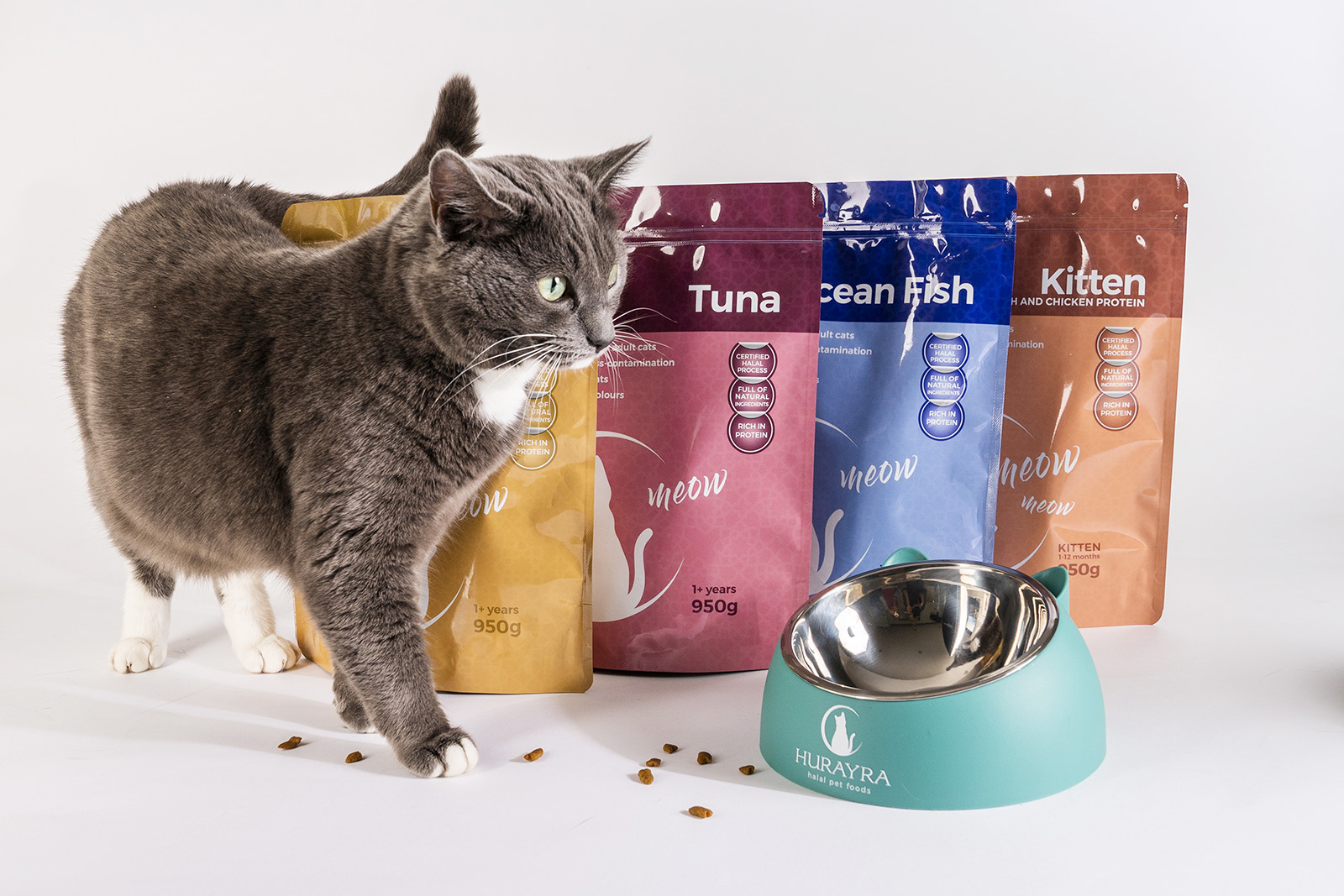
Your website stocks kibble but not wet food, why?
Wet food has an expiry date of two or three years, so imagine the chemicals that are used to keep that food moist in the pouch. It’s not great for the cats’ health. I want to release the wet food when I am completely satisfied with the formula. The dry food encourages your pet to drink fresh water, which is far more beneficial than the gravy or jelly put in the wet food.
Why did you choose a supplier based in Asia and not in the UK?
The environment and the halal process are much more robust in Malaysia. The UK couldn’t guarantee me the halal process, it’s impossible for them to do it. I’ve learned a lot through venturing into Hurayra about how important it is to know exactly what is in the foods we purchase for our animals. Even for us humans, from the butchers all the way to when you have something on your plate, the process has to be halal.
Why is HMC certification important to Muslim food business owners?
When I started calling all the supermarket-brand cat food factories in the UK and asked them if they can guarantee the fish option has only fish in it and no cross-contamination, they mentioned that they have other meats like pork, duck, chicken and lamb on a conveyor belt and can’t keep cleaning it every time they put a fish product on, or clean the packaging that the meat product has touched.
I then got HMC to audit the factory I use in Malaysia, which took them five hours. From the gloves that I use to the ethanol used to clean the machines, it all complied with the HMC standards. Halal doesn’t just mean what you eat, the whole process needs to be halal.
 Newsletter
Newsletter

